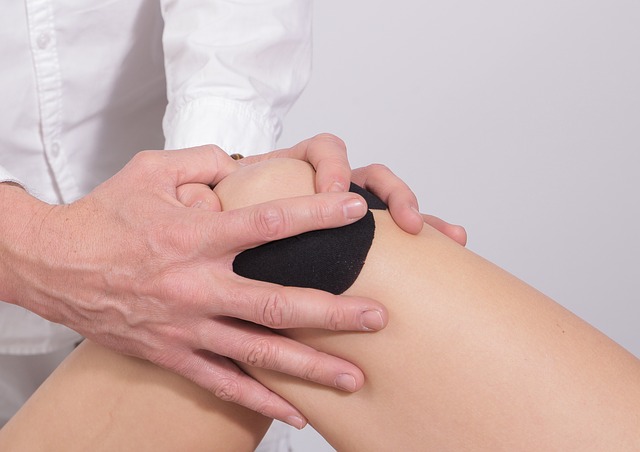Chronic pain is no walk in the park. In fact, many women who live with it may not want to walk at all. It can make daily life and accomplishing the simplest things a struggle, causing both physical and emotional distress. Chronic pain is a condition that affects millions of people all over the world. Fortunately, although it can feel isolating, there are really others out there who understand. Additionally, there are things you can do to ease your pain that won’t produce an intoxicating effect. The right treatments can also make it easier to cope with, but, many people make common chronic pain mistakes that hurt them more in the long run. Of course, seek the advice of your health care provider before starting or stopping treatment. Take an inventory to see if you might be doing any of these eight.
#1: Hiding Your Pain
Pain is something that you can get used to, however, hiding or ignoring it may be more damaging than you think. Depending on what type of pain it is and what causes it, paying attention to it could be a matter of life or death. Therefore, if you’re hiding your pain, you are doing yourself a disservice.
As well as physical distress and worsening a condition, chronic pain can trigger a number of mental health problems, including anxiety and depression. These are isolating illnesses, and faking wellness only isolates you further. If you’re hiding it because you don’t want to be a burden, consider talking to your family about your feelings and symptoms, so they can support you in the ways you need.
#2: Skipping Doctor Visits
Some women are able to manage their pain alone, but not seeing a doctor regularly is one of the most common chronic pain mistakes. The most important reason for this to so ensure that the pain isn’t related to a medical problem that needs urgent treatment. Your doctor can also refer you to a specialist or center for pain management if symptoms persist or get worse. There you can receive treatment or additional information to learn more about your pain and the potential causes behind it.
#3: Having Surgery Right Away
Surgery is often the last resort, but, where chronic pain is concerned, many want instant results and may see it as the most efficient option. The belief that surgery will end the pain quickly is the driving factor behind many surgeries. However, this is rarely the case. The truth is, surgery doesn’t come with any guarantees and can actually make the pain worse. Though in some cases, the benefits may outweigh the risks, it’s important to consider them carefully. Know that all surgical procedures come with the risk of infection, nerve damage, and scarring. Because of this, consider all other treatments first.
#4: Continuing What Doesn’t Work
After a doctor recommends a particular treatment for pain, it’s crucial to give it time to work. Medication, therapy, or other remedies rarely work immediately. Keep a pain journal to assess each treatment for effectiveness. That said, if time passes without improvement, discuss a new plan with your doctor. If you’re treating mild pain without a doctor’s advice, do research about other options and seek help if you need it.
#5: Not Taking Medications or Supplements as Directed
We all forget things now and then, however, skipping a prescribed medication or daily treatment could be life-threatening. Some drugs have dangerous side effects, especially if they aren’t taken as prescribed. If your memory is causing chronic pain mistakes, use a daily medication caddy. Alternatively, you could set reminders on your phone. Remember, if something isn’t working for you, talk to your doctor before you make any changes. Do report any side effects that don’t seem normal.
#6: Overlooking Natural Remedies
In the past, chronic pain was usually treated with pain meds and rest. However, these days, doctors are less likely to prescribe narcotics and heavy medications. Therefore, patients are left to seek other forms of treatment for relief. In reality, natural remedies such as supplements, acupuncture, massage, chiropractic, hot and cold treatments, and even hypnosis, can be more effective than mainstream drugs. Furthermore, they don’t have the potentially dangerous side-effects that many medications have. Even if you do take some type of pharmaceutical drug for your pain, consider adding a natural treatment to complement it if your doctor approves. For example, consider pain specialists like those at RELATYV At Home Pain Management in Michigan or ones near you.
#7: Avoiding Physical Activity
When you’re in pain, the last thing you want to do is exercise, right? After all, physical activity can be painful at the best of times, let alone during a bout of chronic pain. Do know, however, there are certain exercises designed to ease pain, especially ones for the back. Movement increases blood flow and strengthens your muscles, which reduces pressure on your joints and bones. Exercise also triggers the release of endorphins, which can help to fight stress.
#8: Not Dealing with Stress
Chronic pain can create additional life stress simply because everything is harder. You may get behind in housework, your job responsibilities, and have no time and energy for yourself or loved ones. Unfortunately, this kind of constant stress can also exacerbate your condition, making your pain worse. To avoid getting trapped in a horrible cycle, find ways to manage your stress effectively. Many chronic pain patients find activities like yoga, meditation, painting or talking quite relaxing. The key is to find what works for you and practice it consistently.
**** This post is strictly informational and is not meant to replace the advice of your healthcare provider. Women’s lifelink, it’s owners, administrators, contributors, affiliates, vendors, authors and editors do not claim that this information will diagnose, treat, or improve any condition or disease.
 Women's Life Link Be Well, Be Happy, Be YOU!
Women's Life Link Be Well, Be Happy, Be YOU!








